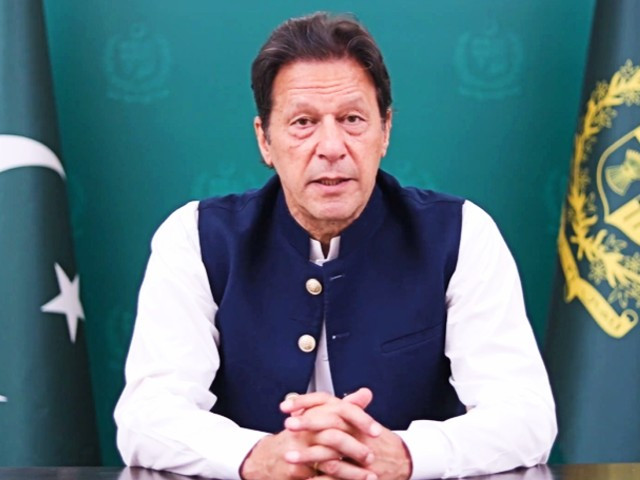
Prime Minister Imran Khan while reminding the world community that it cannot abandon its moral and legal responsibilities towards Kashmiris stated that durable peace in South Asia is contingent upon peaceful resolution of the Jammu and Kashmir dispute in accordance with international legitimacy.
“The importance of the inalienable right to self-determination has been acknowledged in all important human rights covenants, decisions of the United Nations General Assembly and Security Council,” the premier said in his message on the occasion of Right to Self-Determination Day, which is observed on January 5 (today).
On this day in 1949, the United Nations Commission on India and Pakistan (UNCIP) adopted a resolution that guaranteed Kashmiri people their inherent right to self-determination through a free and impartial plebiscite in Jammu and Kashmir.
“While observing January 5 as Right to Self-Determination Day for the Kashmiris, we reiterate our commitment to uphold the fundamental human rights of the people of Jammu and Kashmir and pay homage to Kashmiris’ just struggle spanning more than seven decades,” the PM said.
Read Modi govt forming proxy parties to legitimise IIOJK move: Mufti
“We are commemorating this day to remind the world community that it cannot abandon its moral and legal responsibilities towards the Kashmiri people,” he added.
The premier pointed that the right to self-determination granted to Kashmiris by the United Nations could not be unilaterally denied by India.
“Three generations of Kashmiris have waited for the world community and the United Nations to honour their solemn commitments made to Kashmiris,” he said and added that Indian atrocities in the Indian Illegally Occupied Jammu and Kashmir (IIOJK) continued unabated but the Kashmiris stood steadfast against them.
PM Imran said with the presence of 900,000 troops, India had turned the occupied territory into the largest open-air prison and the most militarised zone in the world.
“The recent surge in oppression of the people of IIOJK through arbitrary detentions, coercion, harassment and humiliation, and extra-judicial killings in staged encounters and cordon-and-search-operations is a matter of grave concern for the international community,” he added.
The premier noted that India’s illegal and unilateral actions of August 5, 2019, and subsequent measures, particularly pertaining to domicile rules and land ownership laws, were aimed at changing the demographic structure of IIOJK and converting the Kashmiris into a minority in their own land.
“These Indian actions are blatant violation of the international law especially the UN Charter, UN Security Council Resolutions, and the 4th Geneva Convention. Kashmiris have been deprived of their rights to life, food, health, freedom of expression, freedom of assembly, freedom of religion, and above all the right to self-determination,” he added.
“Pakistan calls upon the international community to demand from India an immediate end to its state-terrorism against Kashmiris and allow access to international human rights and humanitarian organisations to the occupied territory.”
The premier reiterated that “Pakistan will continue to extend all possible support to the Kashmiris till the realization of their inalienable right to self-determination and a just resolution of the Jammu and Kashmir dispute in accordance with the relevant UNSC resolutions and the wishes of the Kashmiri people”.

1725967717-0/Untitled-design-(3)1725967717-0-405x300.webp)

1725275251-0/Untitled-design-(3)1725275251-0-165x106.webp)

1720097164-0/BeFunky-collage-(9)1720097164-0-165x106.webp)
1730547935-0/Untitled-design-(5)1730547935-0-270x192.webp)

1730544105-0/Untitled-design-(87)1730544105-0-270x192.webp)
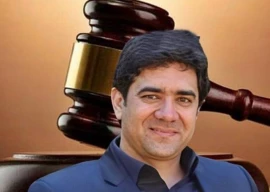
1730543683-0/Express-Tribune--(3)1730543683-0-270x192.webp)
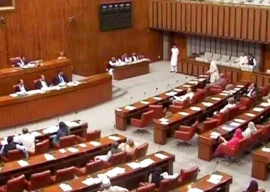
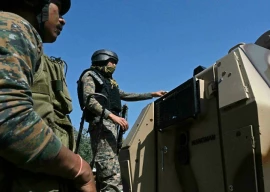
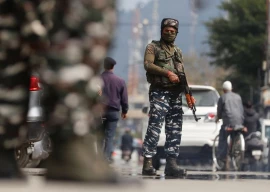







COMMENTS (2)
Comments are moderated and generally will be posted if they are on-topic and not abusive.
For more information, please see our Comments FAQ